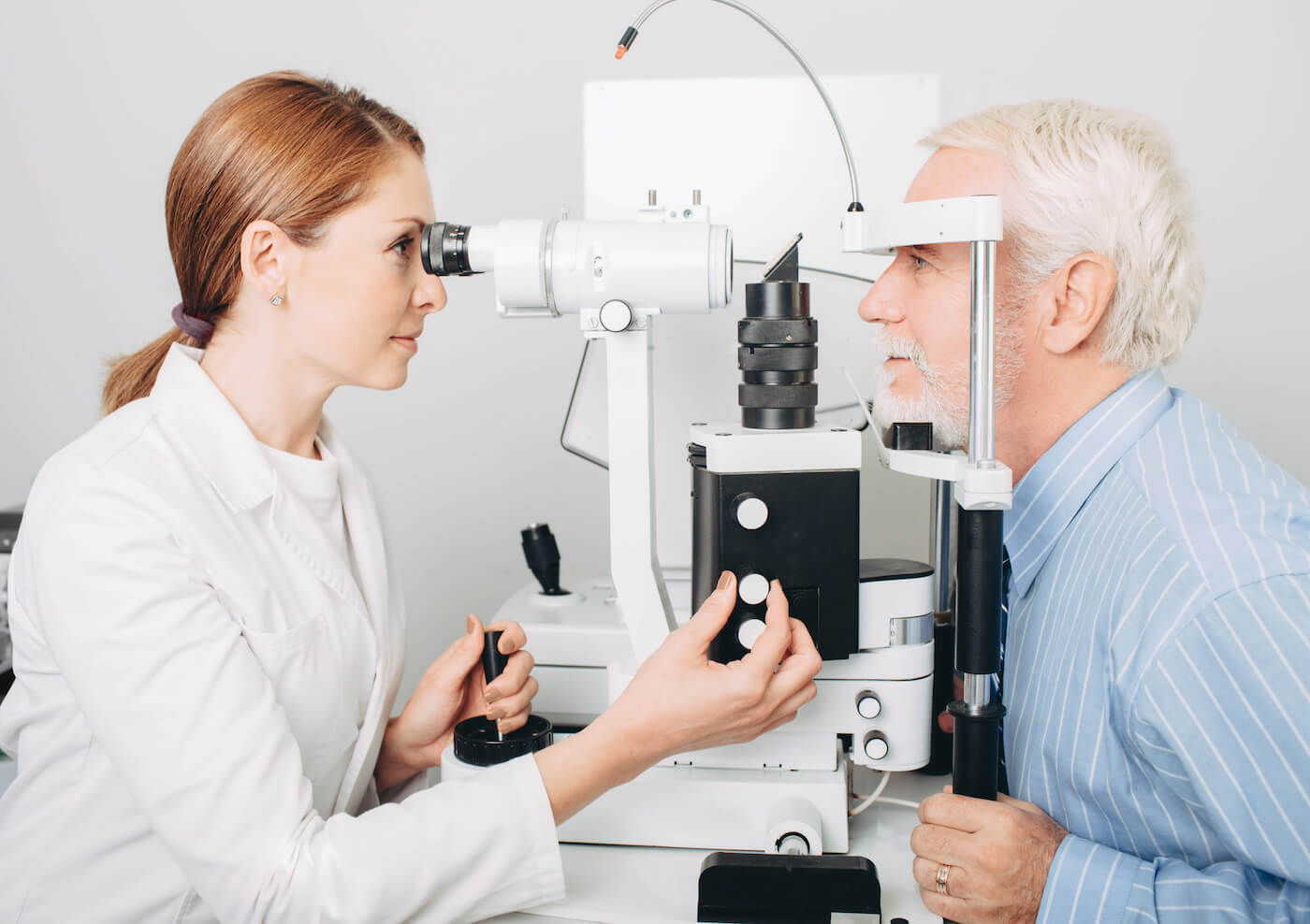 Időpontfoglalás
Időpontfoglalás
 Időpontfoglalás
Időpontfoglalás

Az általános szemészeti vizsgálat a látászavarok, illetve a szem betegségeinek diagnosztizálásával és kezelésével foglalkozik.
Szemészeti szakrendelésünkön a szem fénytörési hibáiból fakadó látászavarokkal (rövidlátás, távollátás, astigmia), továbbá a szembetegségekkel foglalkozunk, mint például a kötőhártya-gyulladás, zöld hályog, szürke hályog.
A rendszeres szemészeti kontrollvizsgálat tünetmentes állapotban is szükséges, mivel a szemészeti szűrés fényt deríthet a szervezet egyéb, panaszokat nem okozó megbetegedéseire is. Cukorbetegeknek és magasvérnyomás-betegség esetén ajánlott az évente végzett kontrollvizsgálat, mivel mindkét betegségnek súlyos, a látást érintő szövődményei is kialakulhatnak.
A szakorvos részletesen kikérdezi panaszairól, korábbi látásproblémáiról, szembetegségeiről. A fizikális és műszeres vizsgálat során a szem szerkezetét és működését vizsgálja meg. Ellenőrzi a látásélességet és a színlátást, réslámpával megvizsgálja a szemfeneket, szemnyomásmérést, illetve szükség esetén komputeres dioptriamérést (refraktometriát) is végez.
A rendszeres szemészeti vizsgálat eredménye, hogy idejében felderíthetők egyes betegségek, és megelőzhető a további látásromlás és más súlyos szövődmények.
Szemészeti vizsgálatra való felkészülés során az alábbiakban felsorolt tudnivalókra érdemes odafigyelnie általánosságban:
Ha bármilyen további kérdése van a vizsgálattal kapcsolatban, ne habozzon megkérdezni szemész orvosát, vagy vegye fel a kapcsolatot az Affidea ügyfélszolgálatával hivatalos elérhetőségeinken: a + 36 1 803 6464-es telefonszámon vagy a www.affidea.hu/kapcsolat/ oldalon.
A XIII. kerület szívében, a város egyik legkedveltebb üzleti negyedében található Affidea Váci Greens Egészségközpontunkban több mint 20 szakorvosi területen kínálunk magas színvonalú járóbeteg-szakellátást, korszerű képalkotó diagnosztikai vizsgálatokat, laborvizsgálatokat és prevenciós szűrőcsomagokat – várólisták nélkül. További információért kérjük látogasson el az affidea.hu/kozpontok/vaci-greens-egeszsegkozpont oldalra.
A II. kerületi Széll Kálmán tértől gyalogos távolságra lévő Mammut Egészségközpontunk a Mammut II. bevásárlóközpont 4. emeletén található. Pácienseink exkluzív környezetben vehetik igénybe 18 különböző szolgáltatásunk bármelyikét, beleértve szakorvosi vizsgálatainkat, laborvizsgálatainkat és szűrővizsgálatainkat. További információért kérjük látogasson el a mammutegeszsegkozpont.hu oldalra.
Kérjen visszahívást és segítünk megtalálni a megfelelő szakorvost!
VISSZAHÍVÁST KÉREK!
A XIII. kerület szívében, a város egyik legkedveltebb üzleti negyedében található Affidea Váci Greens Egészségközpontunkban több mint 20 szakorvosi területen kínálunk magas színvonalú járóbeteg-szakellátást, korszerű képalkotó diagnosztikai vizsgálatokat, laborvizsgálatokat és prevenciós szűrőcsomagokat – várólisták nélkül. További információért kérjük látogasson el az affidea.hu/kozpontok/vaci-greens-egeszsegkozpont oldalra.
A II. kerületi Széll Kálmán tértől gyalogos távolságra lévő Mammut Egészségközpontunk a Mammut II. bevásárlóközpont 4. emeletén található. Pácienseink exkluzív környezetben vehetik igénybe 18 különböző szolgáltatásunk bármelyikét, beleértve szakorvosi vizsgálatainkat, laborvizsgálatainkat és szűrővizsgálatainkat. További információért kérjük látogasson el a mammutegeszsegkozpont.hu oldalra.
Kérjen visszahívást és segítünk megtalálni a megfelelő szakorvost!
VISSZAHÍVÁST KÉREK!